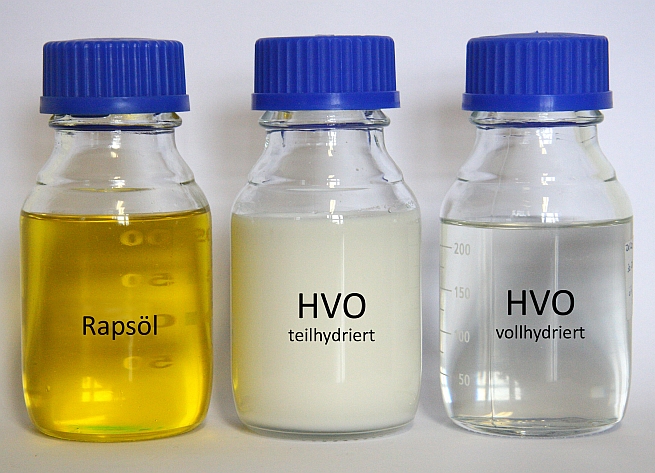DGMK-Project Fuel Oils
Hydrogenated Bio-Oils as a Drop-In Fuel for Middle Distillate Applications – Production and Utilization
TU Bergakademie Freiberg, Institute for Energy Process Engineering and Chemical Engineering, Reaction Process Engineering, Andrej Awgustow
The hydrogenation of vegetable oils is an increasingly important process for obtaining high-quality fuel components from renewable raw materials. In DGMK project 743, the suitability of HVO as a substitute for EL heating oil could be demonstrated with low sulphur in the field of domestic heating. The use of waste oils and other bio-oils, which do not compete with food production, extends the raw material base and is associated with an increased greenhouse gas savings potential. In a follow-up project, the use of secondary raw materials or waste materials for the production of synthetic fuels by means of hydrogenation will therefore be investigated and, in addition, their suitability for use in modern surface burner systems will be demonstrated. At the same time, questions that have arisen in the course of the above-mentioned project are to be answered in this follow-up project.
One of the challenges in this follow-up project will be the production of HVO from secondary raw materials that have not been used for this purpose so far. Initial investigations showed a comparatively rapid deactivation of the catalysts used, which is presumably due to impurities contained in secondary raw materials. Accordingly, catalysts must be adapted to new educt streams and, if necessary, an upstream treatment process must be developed. On the other hand, bifunctional catalysts are to be characterized and developed which are effective for both hydrogenation and isomerization. The process step of isomerisation is necessary, as this significantly improves the cold properties of the HVO. In particular, possible interactions with energy sources already on the market, such as fuel oil EL and FAME as well as used goods, must be clarified with regard to stability and ageing. The introduction of HVO with a predominantly straight-chain molecular structure (n-alkanes) - either as a blend component or as a pure substance - also leads to a change in the chemical-physical properties of the fuel. In this context, changes in application-relevant material properties such as laminar burning rate, ignition temperature and evaporation properties have to be investigated, which can make the use in marketable fuel oil appliances - especially in modulating surface burners of low power - difficult.
The project has been completed. The DGMK research report is available.

Lambert Lucks
Chairman
Jan Ludzay
Head of the Refining and Product Application Department

IGF - Industrial Collective Research
Federal Ministry for Economic Affairs and Energy (BMWi)